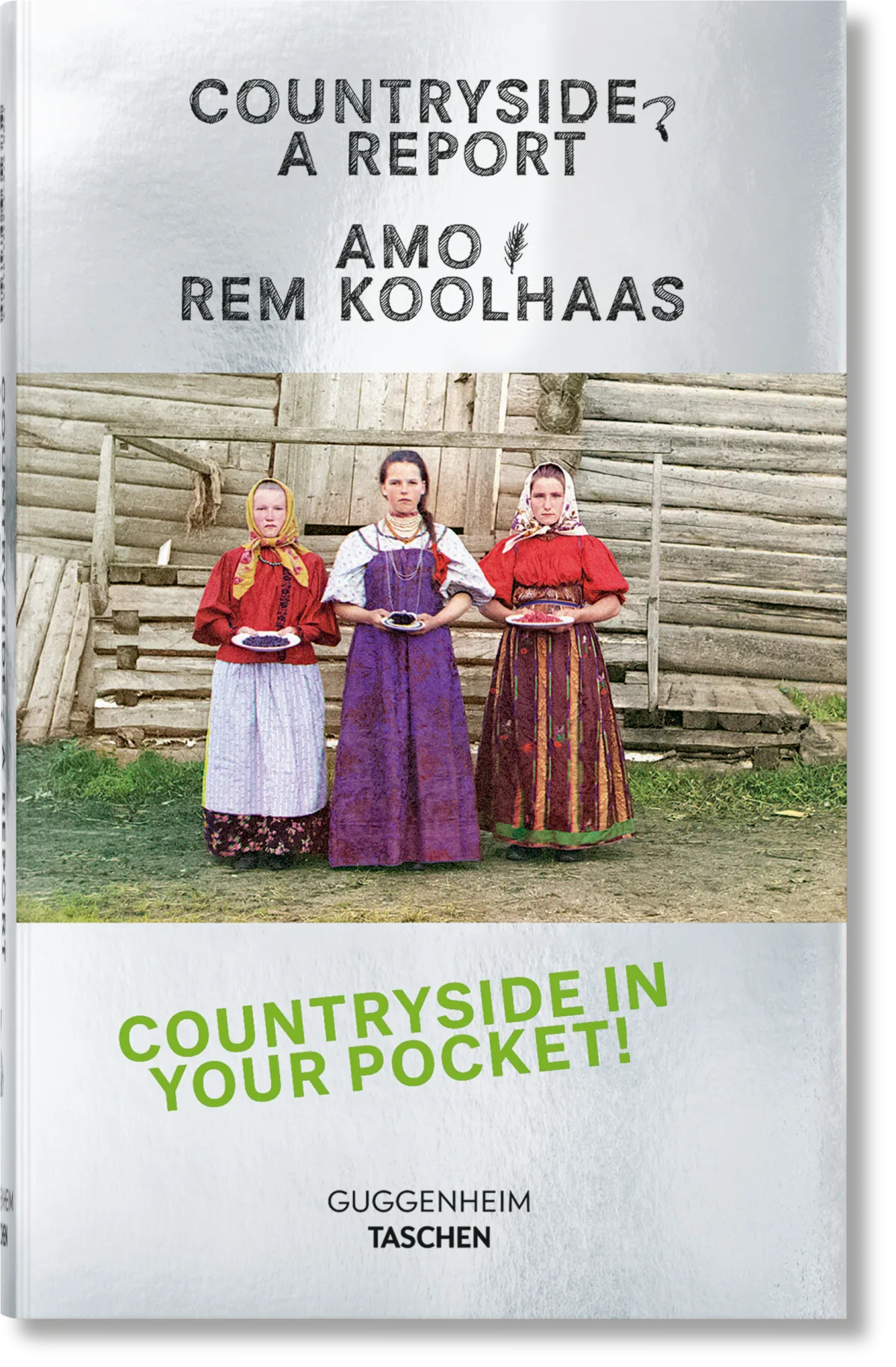'Countryside' in Your Pocket
John Hill
18. March 2020
All photographs by John Hill/World-Architects
With museums closed and people (who can) working from home to combat the spread of COVID-19, now is a really good time to crack open a book. Here we take a look inside Countryside, A Report, the pocket-size printed companion to the Countryside, The Future exhibition that opened at New York's Guggenheim Museum in February.
Curated by OMA honcho Rem Koolhaas and Samir Bantal, the head of the Office for Metropolitan Architecture's AMO think tank, Countryside, The Future clearly focuses on the physical realm beyond metropolitan areas. Reviews of the exhibition have been mixed, with a near consensus that Koolhaas, an architect known for long devoting himself to cities, paints a simplified portrait of "the other 98 percent of the world’s surface" in an uneven visual presentation spiraling up the ramps of the Guggenheim rotunda. The book is therefore a welcome companion, as it allows more room for some of the cursory displays in the exhibition. Although pocket-size, it is packed with content on Koolhaas and company's latest infatuation with the countryside.
From its shiny cover with Russian peasants photographed in 1909 to its 352 index card-size pages, the book is designed by Koolhaas's go-to designer, Irma Boom.
Inside the front flap is a world map highlighting the sixteen countries and regions that are discussed in the book's essays, interviews, and images.
Writer Niklas Maak literally drove across Europe to find stories of people repopulating the countryside. This aerial shows the massive Hambach coal mine in Germany, which encroached on the village of Manheim and led to the creation of a new town at a remove. Subsequently, the old town was used temporarily to house refugees from Syria, while the forest between the town and the pit became the site of a high-profile eco-protest.
Maak then traveled to Camini in Italy's Calabria region. The town, once almost depopulated, was revived in the last couple of decades with the help of Kurdish and other refugees.
One of the two essays by co-curator Samir Bantal puts Countryside, The Future into the context of his family's background — bridging Africa and Europe — and he shares some brief insights on the travels undertaken by him, Koolhaas, Maak, and others for the book's on-the-ground research.
One such trip took Koolhaas and Keigo Kobayashi, formerly of AMO, to Fukushima — more accurately, it took them as close as they could safely get to the site of the 2011 meltdown. Twenty miles north of Fukushima, in the countryside, is a site that replicates urban conditions but is used exclusively as a Robot Test Field, anticipating future events that will require robots to tread and carry out repairs where people cannot.
Another former AMO associate, Stephan Petermann, now based in Beijing, provides a tour of "villages with Chinese characteristics." Yubulu, a tiny village with just 200 inhabitants, is one of the few villages preserved, not demolished, during China's recent urbanization. It is now a magnet for tourists from the cities.
Countryside, The Future tends to skirt such environmental issues as climate change, but "Thaw" by architect Janna Bystrykh confronts it head on, looking at the depleting permafrost in Russia's Yakutia territory.
OMA/AMO designer Anne M. Schneider surveys the American Southwest, what she calls "America's back of house," moving from the Salton Sea to Slab City, Arcosanti, and the landscape outside Las Vegas.
Le Corbusier and other early Modern architects were enamored by the grain elevators of North America. So is, it appears, Koolhaas.
One of the most fascinating contributions to the Countryside exhibition and book is "Pixel Farming," what Koolhaas calls "urbanism for vegetation" and scientist Lenora Ditzler describes as "diverse communities of plants, packed in next to each other in small places, neighbors borrowing from each other, insect visitors navigating foliated avenues, colonies of uninvited but tolerated flora occupying the awkward space in between, all of it somehow coexisting."
The book ends with 25 pages (in much smaller type than these pages) of Koolhaas's strange, apparently stream-of-conscious questions on the countryside.

Countryside, A Report
AMO & Rem Koolhaas
3.9 x 6.3 inches
352 Pages
Paperback
ISBN 9783836583312
Guggenheim & Taschen
Purchase this book












